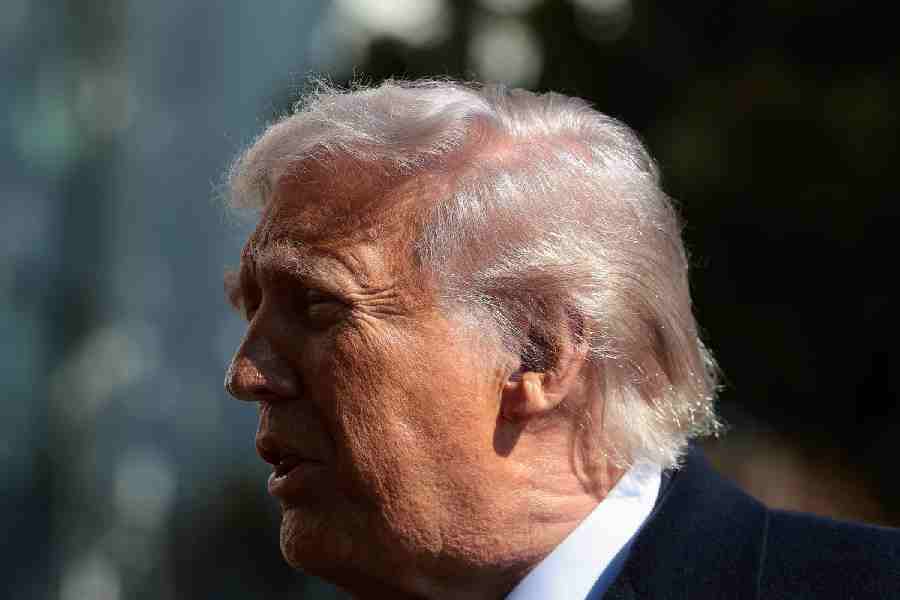New Delhi, May 5: Railway minister Pawan Bansal is merely the latest on a long list of powerful politicians who suffered embarrassment, and often setbacks to their careers, over allegations of misdeeds against family members.
Among them were several Prime Ministers, including Morarji Desai, P.V. Narasimha Rao and Indira Gandhi, and others such as former defence minister Jagjivan Ram and former Maharashtra chief minister Ashok Chavan.
Desai suffered most at the hands of his own party’s leaders and cabinet ministers when, after he became Prime Minister in 1977, allegations of financial irregularities surfaced against his son Kanti Desai.
Noted socialist and fellow Janata Party leader Madhu Limaye is alleged to have written a letter to Desai that got leaked to the press. In the letter, Limaye asked for Kanti’s ouster from the Prime Minister’s residence over allegations that he had misused his family ties to collect Rs 80 lakh for the party fund.
Charan Singh, father of current Union civil aviation minister Ajit Singh, was then Desai’s home minister. He too wrote to Desai — and this letter also got leaked — underlining the charges against Kanti.
Raj Narain, another minister in the Desai cabinet, went a step further by coming up with the rhyme: “Hamse kya parda hai, Kanti ke haath mein garda hai (Why hide it from us, Kanti’s hands are muddied).”
Desai dismissed Raj Narain but the socialist teamed up with Charan to topple Desai as Prime Minister in the late summer of 1979.
Desai’s reluctance to act against Kanti baffled many. One interesting anecdote relating to Desai’s famed unflappability came from K. Sankaran Nair, former head of the Intelligence Bureau and RAW, in his memoirs, Inside IB and RAW: The Rolling Stone that Gathered Moss.
The anecdote goes like this: When Desai was chief minister of Bombay Presidency, an aide came up to him and hesitantly informed him that his daughter-in-law had committed suicide. Desai apparently muttered “Silly girl!” and carried on working on the files on his table.
The 1970s were the age of “politician’s sons”. The “Famous Three” were Sanjay Gandhi, Kanti Desai and Jagjivan Ram’s son Suresh Ram.
While Sanjay’s exercise of extra-constitutional powers is well documented — and played a part in Indira Gandhi’s defeat in the 1977 elections — the allegations against Suresh diminished Dalit leader Ram’s chances of becoming Prime Minister.
Ram was defence minister in 1978 when lurid pictures of Suresh with a Delhi University student were published. Suresh, however, alleged in an FIR that he was set up.
He claimed the student was accompanying him in his car (a Mercedes) when they were stopped by two taxis carrying 10 people armed with revolvers. The gunmen allegedly took the couple to a building near the Delhi-Uttar Pradesh border where Suresh and the student were forced to sign certain letters and get into compromising positions in which they were clicked. Then, Suresh claimed, he was beaten unconscious.
Khushwant Singh, then editor of The National Herald, later recalled in an article: “One day, when I reached the National Herald office, I saw an envelope lying on my table. I opened the envelope, had one look and recognised who was in the picture. Suresh Ram, son of Jagjivan Ram. If the Kamasutra has 64 poses of making love, this one certainly had 10.”
Singh, who published the picture, said he had to cover certain parts with tapes, else the newspaper could have been sued for obscenity.
When Narasimha Rao was Prime Minister (1991-96), his son Prabhakar was accused of involvement in a “urea scam” though the CBI’s chargesheet filed in May 1996 did not name him. It named nine accused, including M. Sambasiva Rao and B. Sanjeeva Rao (associates and relatives of Rao) and Prakash Chandra Yadav, son of Ram Lakhan Singh Yadav, the fertilisers minister in Rao’s government.
The enforcement directorate, which had claimed to have traced the money trail in the alleged payoffs, had initially issued showcause notices to all the accused, including Prabhakar Rao.
In November 2010, Maharashtra chief minister Ashok Chavan had to go because two of his relatives had flats in the controversial Adarsh Society in Mumbai, built for war widows.
 |











